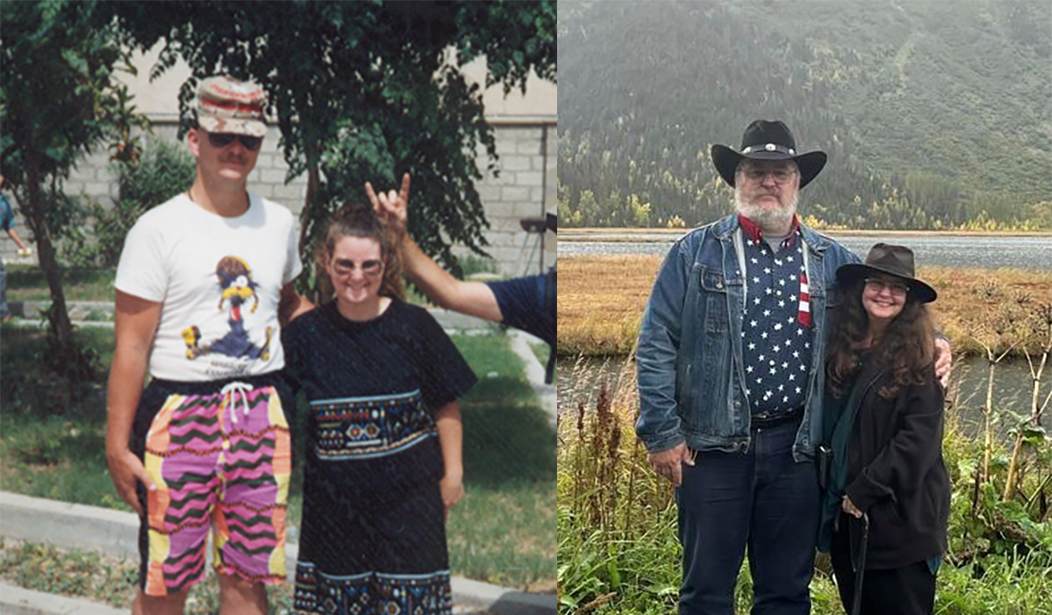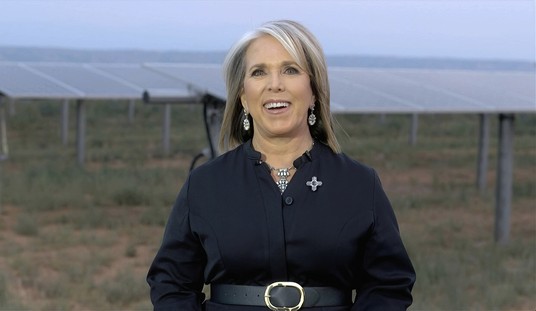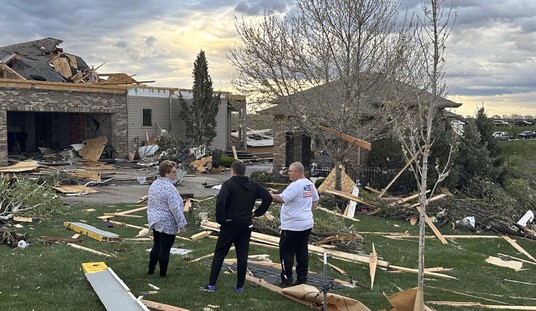Marriage – understood now to mean the forming of an exclusive, intimate bond between a man and a woman – has been the mainstay of human existence since, well, always. It’s taken different forms over time, sure; word has it that Egyptian, Hawaiian, and Aztec royalty often married brother to sister, to ensure the continuation of an unsullied royal line. In fact, royal intermarriage took many forms besides sibling intermarriage, and some were closer to modern Western societies than one might think.
Even today, marriage is changing, no matter what anyone thinks about it; personally, I have never harbored the notion that I was smart enough to tell anyone else how to live, nor do I really give a damn what people do, so long as they leave me and mine alone. Robert Heinlein once described how his father had advised him on this: “My old man taught me two things: 'Mind your own business' and 'Always cut the cards,'” and I adhere to that view.
But the recent loss suffered by the Peltola family here in Alaska deprived me of being able to focus today on my usual plate of political and societal issues, and instead got me thinking about marriage, and more specifically, the nature of life and love that can be shared between two people.
My parents were married for 71 years. Even at the end, in their nineties, they held hands. My wife’s parents are past their 50th anniversary and are still close, inseparable in fact. So my wife and I had a good foundation in that regard. In that, and in my own marriage of almost 32 years, I have some ideas on what makes a marriage work, aside from, shall we say, physical compatibility, which I won’t go into here; I think you can all figure out what that entails. Instead, I intend to write about other aspects, based on my own experience. These are the things that make a marriage work.
- Respect. There is an old Chinese proverb about marriage: “Between these two, let there be respect.” Granted respect is something that must be earned. When my wife and I were just getting to know one another, we were both deployed for Operation Desert Storm; I was careering around northern Saudi Arabia, southern Iraq, and Kuwait in an Army five-ton truck; she was running a medical clearing station, in a new method that involved stabilizing Army patients and transferring them to the Air Force for the flight to the hospital in Landstuhl, Germany. Two O-6 bird colonels, one Air Force, one Army, and an Army captain had utterly hosed the operation up; she was a first lieutenant, and in effect, she walked in, all 4’11” and maybe 100 pounds of her, shoved them aside, set that station up and ran it, successfully enough that she was awarded the Bronze Star. She has more physical and emotional courage than anyone I’ve ever met; thus, respect.
- Love. When many think of that word, they think of the new, exciting, youthful love so often portrayed in film and literature. But what makes a lifelong arrangement work isn’t that; it’s the kind of love that endures, that sees children born and children grown, homes built, jobs won and lost, businesses started, failed, and finally, businesses that succeed, all with the goal of sharing those happy, golden years together.“Grow old along with me,” as Robert Browning wrote, “the best is yet to be!” After almost 32 years we still have fun together, and we still take joy in each other's company. That’s how a marriage endures; thus, love.
- Commitment. This is an easy one to describe, but somewhat harder for some people to adhere to. A long-term relationship cannot work without trust, without a shared intent for things to last. Keeping promises, in other words. I’ve been keeping promises for 62 years now and will keep doing so; my wife has been doing the same, in our lifelong promises made to each other; thus, commitment.
- Goals. If one partner’s goal is a double-wide trailer and a six-pack every Friday night, and the other’s goal is a Manhattan penthouse, the relationship is not likely to succeed. Common interests, common goals, and common measures for success, all these are vital for a relationship. Before I met my wife, I spent some time with a girl who complained bitterly about my disappearing into the woods every hunting season; when I first mentioned it to my soon-to-be wife, her reply was “Really? Can I go?” She has accompanied me, joyously, on many outdoor adventures since; thus, goals.
- Priorities. Some enter a marriage with the idea of children and in time, grandchildren; others, choose to remain childless. Some have other priorities, church, sports, attainment of wealth, flashy vehicles, or houses in the woods. Very soon after my wife and I were married, we realized that we had two major priorities in common: A family, and a house in the woods on a small, secluded acreage. We worked on these priorities for many years, and in time, attained them; we have four daughters and six grandchildren who fill our lives with joy, and we have our house in the Alaskan woods: thus, priorities.
Marriage today is complicated, of course, by bitter and unhappy people who seek to enforce their own goals and priorities on others; they should be ignored, and, indeed, reviled. It is for nobody to tell anyone how to spin out their personal lives. If they harm no other, people should feel free to do, act, believe, and love as they see fit.
I wrote this morning of the sadness the Peltola family must be feeling on this day, and when I wrote those words, it was a dreary, damp, chilly morning here in south-central Alaska. Now, in the afternoon, the sun has come out, and the day has become brighter and warmer. My heart goes out to the Peltolas, but hopefully, soon, they will be able to see the sun come out themselves and in time, to remember love treasured and love shared.
That’s what marriage is supposed to be. That's what family is supposed to do.














